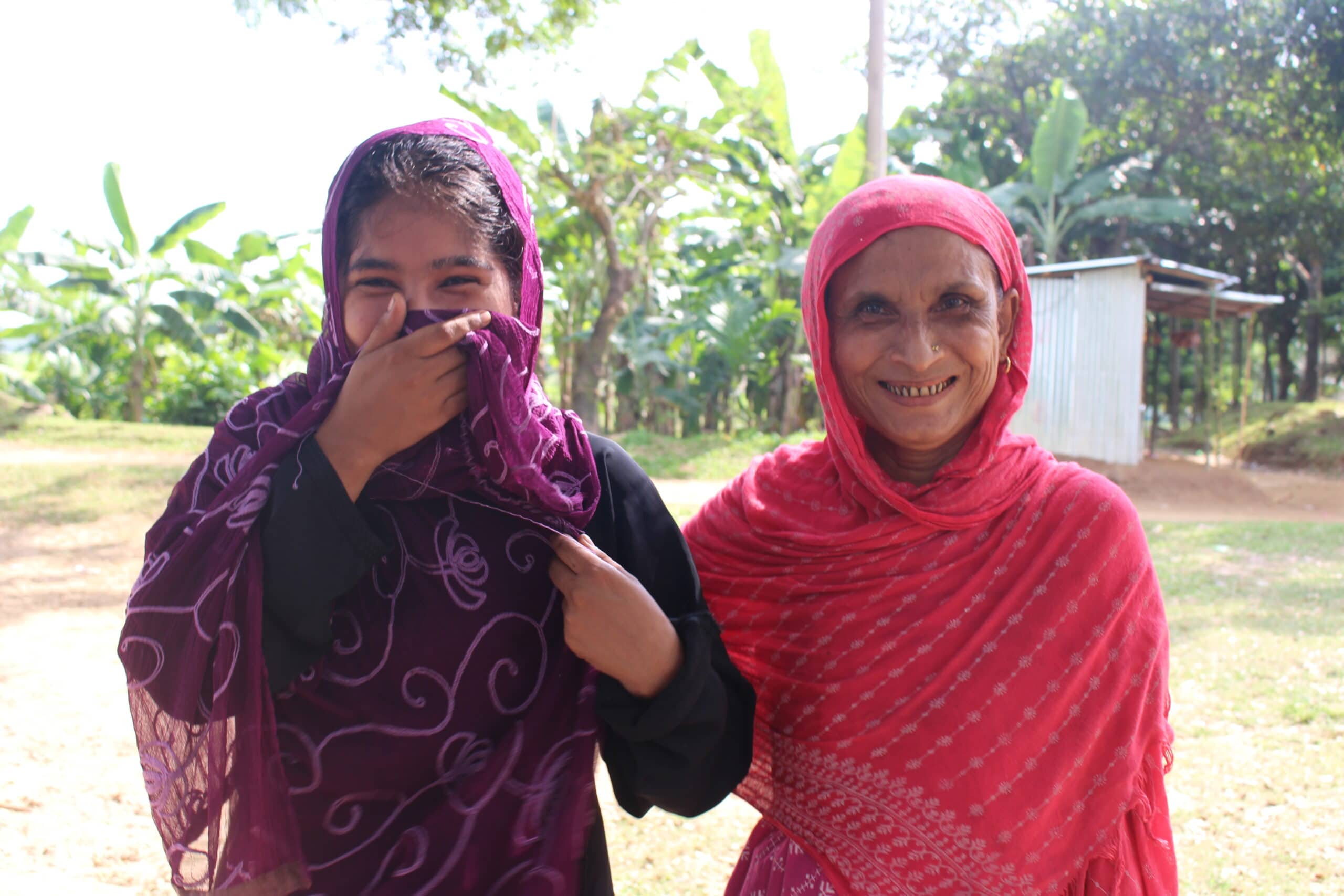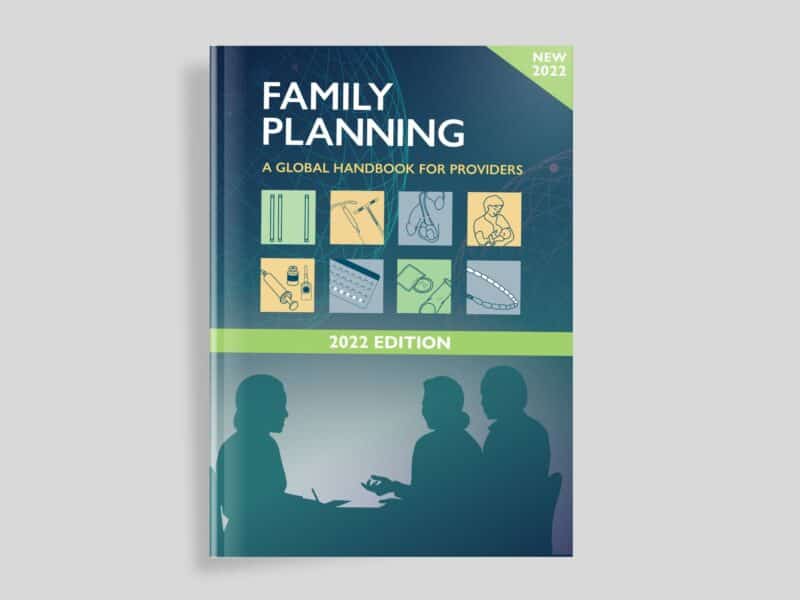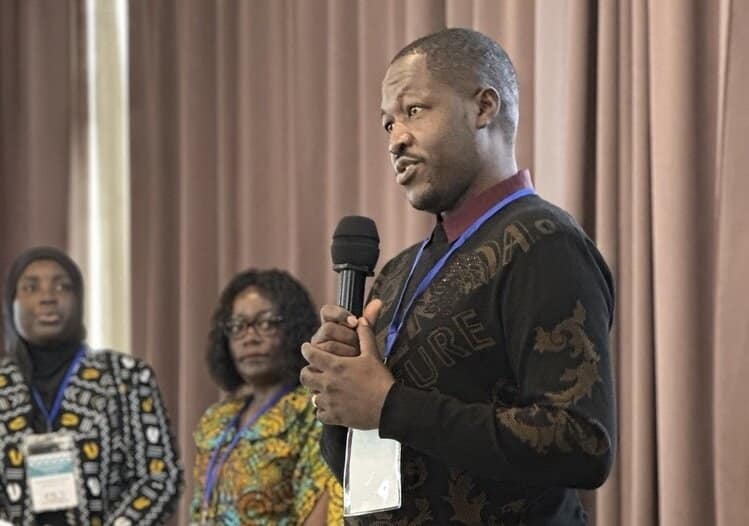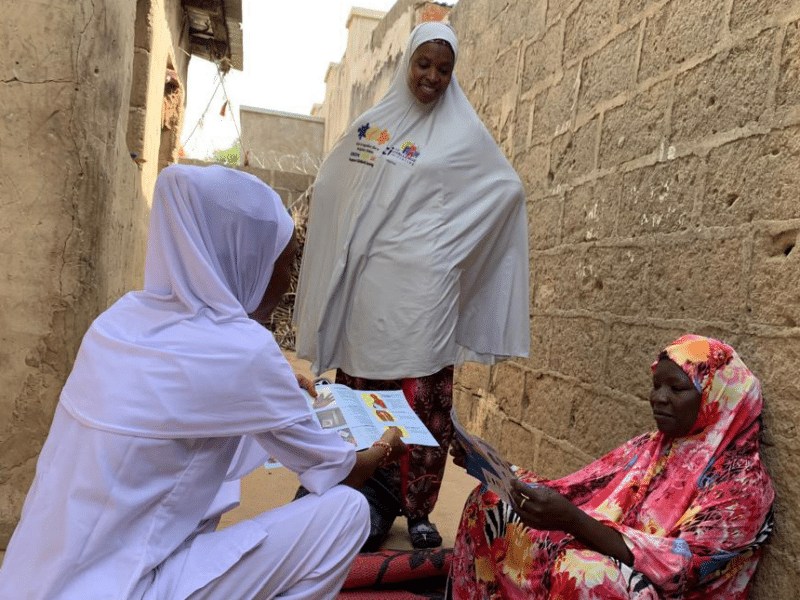Rehana watched her pregnant daughter-in-law, Shampa, go through the same struggles that she and many women in her family were very familiar with – pregnancy and childbirth complications. She wanted a safe and healthy motherhood experience for Shampa. So, when a health worker knocked on Rehana’s door, Rehana was quick to understand that her daughter-in-law needed to be getting medical advice and care from professionals.
Rehana, 63, lives in Northeastern Bangladesh where she gave birth to her first child in 1976 at the age of 18. Back then, the average Bangladeshi woman would bear about seven children during her lifetime. Rehana’s back-to-back pregnancies blessed her with five children, but she remembers how the frequent childbearing took a toll on her health.
Seeking services from professionals was neither a common practice in her community, nor an affordable or accessible option for her. In the 70s and 80s, Rehana relied entirely on the advice and guidance from the women in her family, especially her mother-in-law. This deprived her of not only adequate prenatal care but also knowledge about postpartum family planning and spacing pregnancies.
That knock on Rehana’s door came from Nazma Begum, one of the more than 6,000 health and frontline family planning workers trained by the Johns Hopkins Center for Communication Programs’ Ujjiban project to provide counseling to young Bangladeshi women and their family members on reproductive health and family planning.
“What my family taught me about pregnancy practices was not good for my health or my children’s health,” says Rehana. “I like what the health care workers are teaching these days. Their advice and services are good for our daughters and daughters-in-law.”
According to the World Health Organization, pregnancy and childbirth complications are among the leading causes of death among women living in developing countries. Each pregnancy amplifies the mother’s health risks, especially when she does not have access to health care. On top of that, back-to-back pregnancies do not give the mother sufficient time to recuperate after losing essential nutrients, putting them at higher risk for anemia and other difficulties.
During that first home visit, Nazma showed Rehana videos on prenatal care and family planning. Following Nazma’s visit, Rehana was motivated to take her daughter-in-law Shampa to the nearest healthcare facility for a prenatal checkup. She also signed up Shampa for courtyard conversations with other pregnant and new mothers sponsored by the health clinic.
Nazma was provided with Ujjiban’s eToolkit, which consists of audiovisual materials on health, population and nutrition made available on phones or tablets. Nazma and the other frontline workers completed eLearning courses on these health topics as part of their training.
Frontline workers encourage couples to use family planning methods and provide them with contraceptives. They orient couples, as well as family members of pregnant women, on pre- and postnatal care, danger signs of pregnancy and delivery at health care facilities.
With Rehana’s son – Shampa’s husband – out of the country for work, Rehana is determined to make sure that Shampa, who is pregnant with her second child, lacks for nothing. Rehana’s interactions with Nazma have educated her on healthy dietary practices during pregnancy, the five crucial danger signs during pregnancy and myths associated with pregnancy and postnatal care.
All these learnings are helping her to take better care of Shampa and do the best to ensure that both mother – and unborn baby – are healthy.
“I am delighted that I will be a grandmother again,” Rehana says. “I feel good about creating a happy pregnancy experience for my daughter-in-law with proper care this time.”





